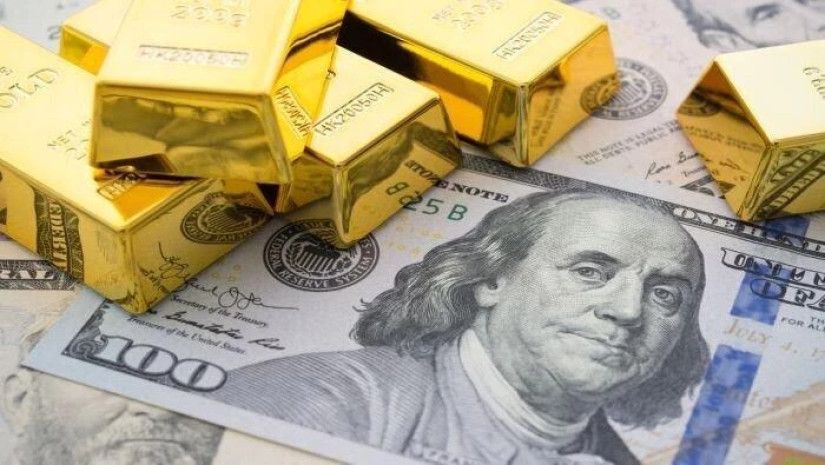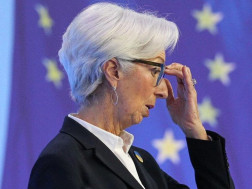John Pierpont Morgan the founder of America’s largest bank - J.P. Morgan opined: “Gold is money, everything else is credit”
Despite the current high inflation seen around the world and in the world’s reserve currency, July USA inflation was at a 40 year high of 9%, the gold market has not moved much, and gold prices have fallen since the unfortunate war in Ukraine started.
Conventional wisdom says that gold is the anti-dollar. That is, whenever the greenback is strong, gold is weak, and vice versa. Gold prices react inversely to U.S. dollar real yields. But gold is not about inflation on its own, and it's not about interest rates on its own. But it's about the relationship between the two.
Gold has been on a roller-coaster this year as Russia’s invasion of Ukraine spurred a rally in the safe haven asset to well above $2,000 an ounce in March, only for the momentum to fade as the growth and inflation outlook shifted towards higher us interest rates potentially causing global recession risk. Gold bullion has come under relentless selling pressure in the past few months as investors turn to the U.S. dollar in the face of an increasingly hawkish U.S. Federal Reserve
Gold last month reached a nine-month low as economists project US inflation has soared the most since 1981, paving the way for the US Federal Reserve to impose another big interest-rate hike at the next central bank meeting.
Mr Market is pricing in recession risk across asset classes and economic sectors even though there is no real evidence yet that we will see anything other than a business cycle slump, not a broad credit-driven balance sheet crunch.
Global investors are increasingly concerned rapid monetary-policy tightening may spark a global economic downturn. As investment strategists, it is imperative that we learn to think conditionally and hypothetically across a range of macro possibilities and that includes honest money - gold.
Global investors have cut holdings in bullion-backed exchange-traded funds listed on western stock markets this year because the price of gold in US dollars depends on the real interest rate.
Rates (real interest rate= inflation minus the risk-free rate paid by the Central Banks). This is fundamental because gold competes with the bond market (which is the biggest financial market in the world). If you have some cash, and you can earn an interest rate with it, by buying a bond, why would you hold gold? There is no reason for it. You’d rather hold the bond and earn the interest rate. But if the real interest is negative, and your bond position is losing money because inflation is higher than what your bond is paying you, then you would rather hold gold.
Suppose the inflation rate in the US is 8%, the risk-free rate of the FED is 0%, and the 10-year US Treasury bond is 3% (this bond is a loan to the US government). If you think that inflation is going to be 8% or even more in the next coming years, why would you want to buy bonds and block your money to earn only 3% for the next 10 years?
In 1981, the inflation was 10%, but the short-term interest rate was 16%. Therefore, by holding cash you would directly make 6% with certainty. Contrary to what is happening today, cash was an interesting asset at that time. It was the most liquid asset, you could invest in any opportunity which would arise before you, and it was making 6% a year above inflation.
The real interest rate is the data that drives the behavior of investors towards cash. If the real interest rates are positive, or even flat, investors would use cash as a store of value, because it is the most liquid asset, and is legal tender. But in periods of negative interest rate, as we are in today, investors lose a lot of money by holding cash (or bonds), and they are forced away to find another store of value for the times that they cannot find any good investment opportunities.
Gold is an economic constant. It will never become worthless, nor will it decline due to inflation over time like a fiat currency. Gold carries no risk of default, nor can it go bankrupt. So, when stocks fall, gold tends to hold its ground (or go up). It's great portfolio insurance.
To see a bull market in gold we need negative real interest rates, and a reduction in the USA trade deficit, to trigger almost certainly a rally in the gold market. It has worked in the past 60 years. If it is to work again, we should see in the foreseeable future a significant rally in the price of gold.
Short to medium-term investors should pay attention to the gold / S&P 500 ratio. The number tells you how many ounces of gold it would take to buy the S&P 500 on any given month with the long-term average ratio of 1.67 gold looks attractive compared to US equities and may have made a secular turnaround.















